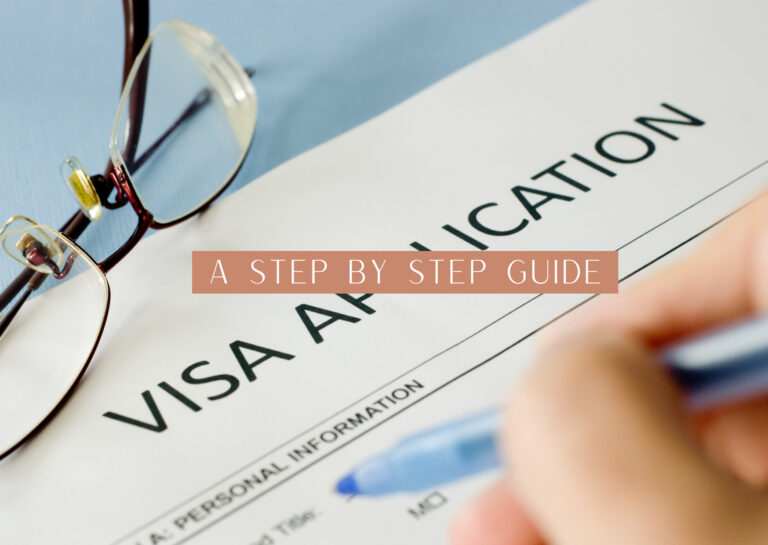What No One Tells You About Living Abroad
Often we talk about the financial cost of what it takes to move abroad. We are wrapped up in the excitement and logistics of getting there; we neglect the emotional cost of moving abroad. If you are on this journey, you are about to uproot your life. You are leaving friends, family, routine, and comfort behind.
We hear the term culture shock. Whether you are volunteering or moving, you will either get a brief talk on culture shock stages, but what does it look and feel like?
It can be different for everyone; some are better than others, but one thing is sure everyone experiences it at some point. Here are the three emotional costs I experienced in moving abroad.
Emotional Cost of Moving Abroad: Loneliness
My first apartment in Chile was not ideal. I had sacrificed the quality of living for location and price. Although my roommate was kind, she lived there with her son, who was 21. I quickly felt that I was not comfortable in my home. I lived in an apartment that I did not like and stayed mostly in my room.
At work, the team I was a part of was like a family, they were close, and I struggled to feel apart of it. It can be challenging to adjust to any job but sprinkle in a language barrier and different cultural norms.
Making friends and building that support system is also challenging. Add all these things up, and I started to feel isolated and lonely. I began to question whether I had made the right decision. Now you probably think this is not me, or I can make friends anywhere, and this is all probably true, but somewhere along the journey, you will hit that low point. Whether it is work or merely the city or town’s pace, you will realize there is an emotional cost.
Tip 1: Stick it out.
Like with anything in life, there are hard times, mostly when change happens in a short amount of time. You probably had planned, dreamed about this moment, and even though it doesn’t look like how you imagined it, give it a chance. As cliche as it is, be open and live through the experience, even the crappy and sad ones.
Tip 2: Make a plan.
Although we lived 10 minutes from each other, my best friend and I decided we wanted to find a place together with other people. Her roommate never moved in, and she was living alone. We both were struggling. We spent time looking at Facebook, seeing places, and finally, I decided to move in with her. Although we wanted to have other Chileans to live with, things happen, and we couldn’t find a place, so we made changes to our expectations. Our morale was better, and at least for me, I felt comfortable in my space. Wher you live is essential, but you might not always get it right the first time, so know you will move.
Tip 3: Make an effort.
It takes time. Others were working at different schools, and they would talk about how they were close with their coworkers, which made me feel worse that I did not have the same relationship. The team I was a part of was like a close-knit family. They had worked together for years, and I was the new one coming in. Naturally, people will invest only so much for someone only there for a year.
Make an effort, sit at lunch with them, talk to them, go out to lunch, grab a coffee together, do what you can. Any gatherings we had outside of work, I would go to build that rapport. Ask them questions, get to know them on a personal level.
Tip 4: Making Friends
This is a hard one. Think of how long you have known your friends. Rapport-building takes intentional time and effort. The one big tip is lean into the people who you know and who are around you. That could be a roommate, coworker, a friend of a friend from their study abroad, fellow participants.
There are a lot of Expat FB groups you can join. If you like dancing, cooking, planting, whatever your hobby is, there are groups out there you can join. Whatever your interests are in your home country, try to find a similar thing in that country.
Native Friends
Whether it is friends who are Chilean or a significant other, it is essential to make friends with locals. You are there to experience a new culture and the best way to understand through the people who live it every day. They teach you about their country and show you places you can’t find on a blog. I learned about Chile through their experience through, not books. So make sure you make friends with Natives.
Emotional Cost of Moving Abroad: Anxiety
Anxiety is something everyone experiences. Perhaps you are someone like me who struggles with it on a day to day basis. Moving can indeed be one of those anxiety-driven life experiences. Nonetheless, it can be done, and it can be managed.
After that initial excitement period, I will not lie that it sets in, a new job, a new apartment, a new culture. This is your life. If you are like me, shy, introverted in new social situations like making friends, then I will tell you trying to make friends in a culture and language that is different will cause anxiety.
Tip 1: Create a Routine
Although it seems obvious, people forget how having a routine for themselves is essential in adjusting. Whatever your routine is at home, try and create a version of that in your new country. Whether that is drinking coffee and watching the news to waking up early to meditate and journaling, whatever it is you do, do it. Be intentional about it. It will help create some normalcy and help provide some control in a situation where your emotions are at an all-time high.
I meditate and use apps like Calm or Insight for my needs. Also, I make and drink my coffee, and watch the news every morning, without fail. I have done this routine in every place I have been to. Maybe you like to watch a show or exercise in the evenings. Whatever it may be, find a way to incorporate those things abroad.
Before you move, think about what do I need to bring with you to help your routine. Maybe you have a favorite mug for your coffee. Perhaps for some, that is unnecessary, but it gives you a sense of normalcy for you.
Tip 2: Say yes, but have boundaries.
Everything is so exciting when moving abroad. You almost want to take everything in and be a part of everything. Remember, you live there now, and you do not need to do everything in one week. You might feel the need to yes to every opportunity.
To that, I say, yes. Take advantage, be open, and say yes. That is how you can meet people, have engaging conversations, see new places in the town or city. But I equally say, know your boundaries. It can be easy to get wrapped up in saying yes and quickly that can turn into anxiety and depression. Spreading yourself thin to try and do everything you sacrifice peace.
Boundaries are different for everyone but make sure you are familiar with yours. Go into uncomfortable settings that challenge you, that is why you moved, but know when it is crossing the line, and you risk your mental health.
Emotional Cost of Moving Abroad: Fear
You fear changing your life and moving across the world and the fear once you are there. I think it is inevitable that at some point, fear sets in and you start to question if you made the right decision. You begin to wonder maybe the dream of moving is better than the actual living it. Questions like, Did I make the right decision? Should I have quit my job? And many more starting popping into your mind.
Tip 1: Breathe and give it a chance.
If anything, you are probably into the first two or three months. There are so many things going on, and you are adjusting to a new life. It takes time. Have patience with your new life and yourself.
Tip 2: Do not make decisions based on fear
Fear is a strong emotion, and if I acted in fear, I would have bought a return ticket and have been in Chile for two or three months. Do not give up, and from my experience, that is right about the time the story gets good.
Remember, like all emotions and circumstances; it is temporary. Live in the uncomfortableness and the fear for a bit. It is all part of the experience.
Tip 3: Remember your why
You probably had some reason why you moved abroad. Whether you hated your 9-5, wanted to experience a new way of life, challenge yourself whatever your why is, remember that and hold on to that.
Go back to that moment you decided to change your life as many times as you need. Think of the courage and confidence you mustered to make the decision. Now find that same courage and confidence to live out the dream.
Is it worth it?
No matter how prepared you are, there will be an emotional cost of moving abroad. Hold on to why you decided to move in the first place and remember difficult periods; however, long don’t last forever. Be patient and give it all a chance. Say yes but have boundaries. The emotional cost of moving abroad will be worth it.







